Crime movies can be surprisingly thought-provoking if they dig into the complex ethical questions that arise from a life of crime. Francis Ford Coppola’s The Godfather is a perfect example. It tells the story of the Corleones, a powerful crime family, as the don faces a handful of assassination attempts that draw his young son Michael – who he wanted to live a legitimate life – into the family’s illicit line of work.
While The Godfather is arguably the greatest and most renowned crime epic ever made, there are a ton of other crime movies with thought-provoking themes beyond their pulpy content.
The Godfather (1972)
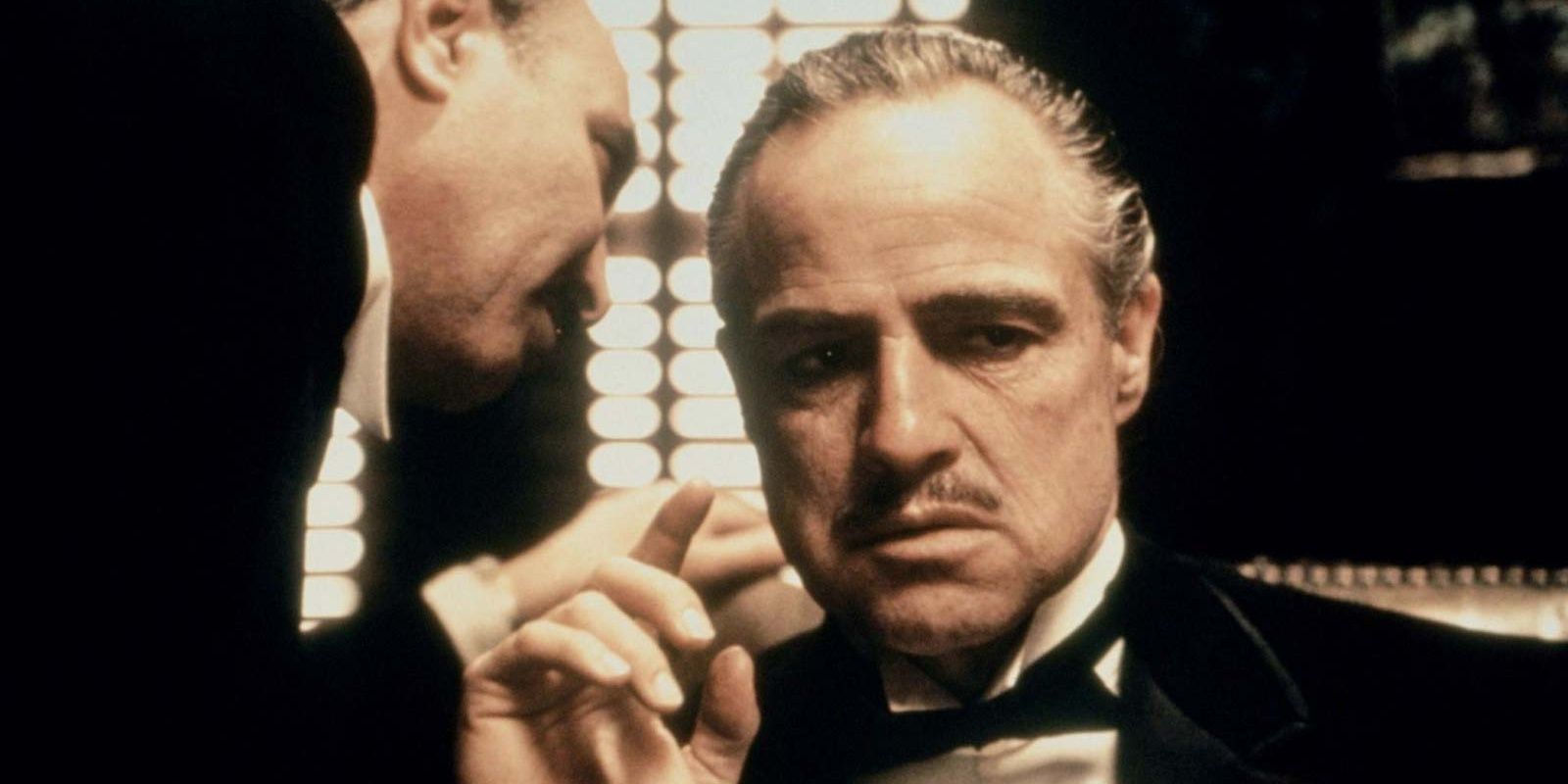
Francis Ford Coppola told the definitive gangster story in adapting the father-son dynamic of Mario Puzo’s The Godfather for the big screen. Marlon Brando and Al Pacino each give one of the greatest performances ever captured on film as Vito, a mob boss at the end of his road, and Michael, the wayward war veteran son slowly corrupted by the family business.
The Godfather was a massive success in the box office and with fans. Coppola offers a dark portrait of the American dream in his 1972 masterpiece, as well as a study of power and masculinity.
L.A. Confidential (1997)
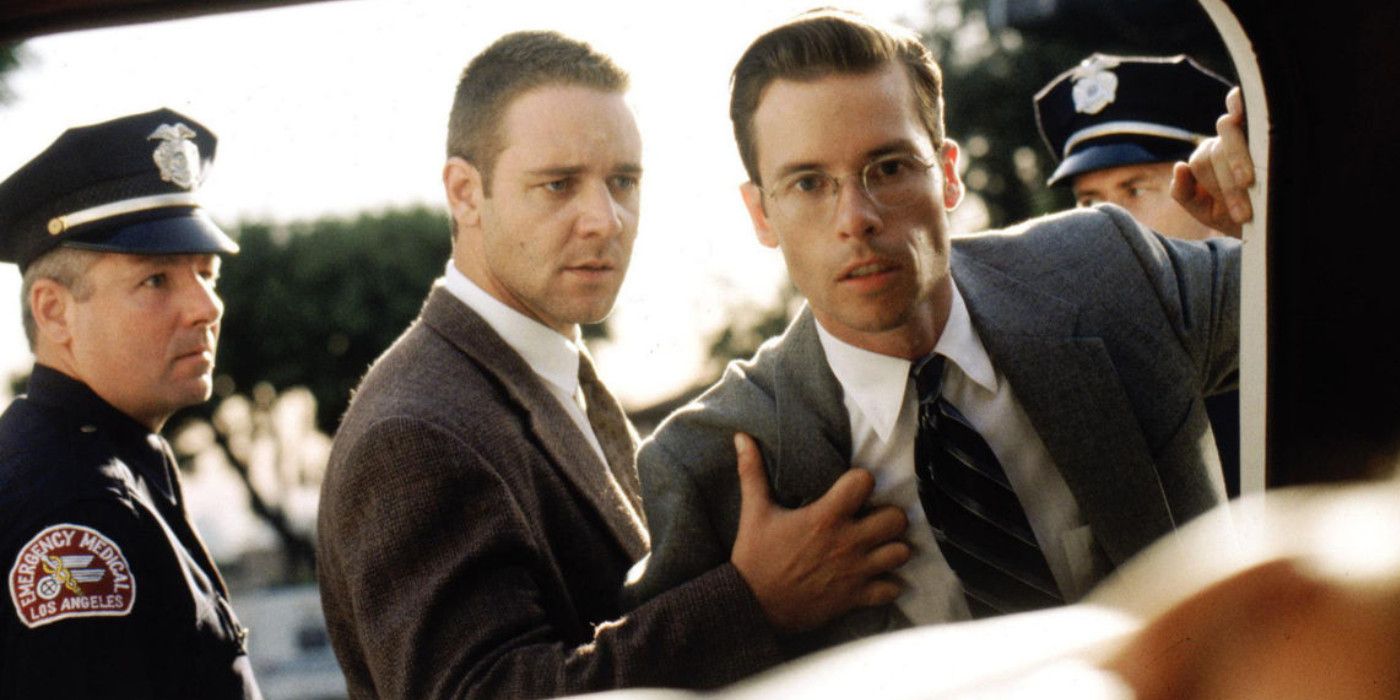
Along with screenwriter Brian Helgeland, Curtis Hanson adapted the James Ellroy crime novel L.A. Confidential into one of the slickest neo-noirs ever made. Redemption is a strong theme in the movie, following its protagonists on their journeys to recognize the error of their ways and become heroic.
As three detectives follow murder cases around Los Angeles, they stumble across corruption in their own department. The movie’s star-studded cast includes such greats as Russell Crowe, Guy Pearce, Kim Basinger, and Danny DeVito.
Scarface (1983)
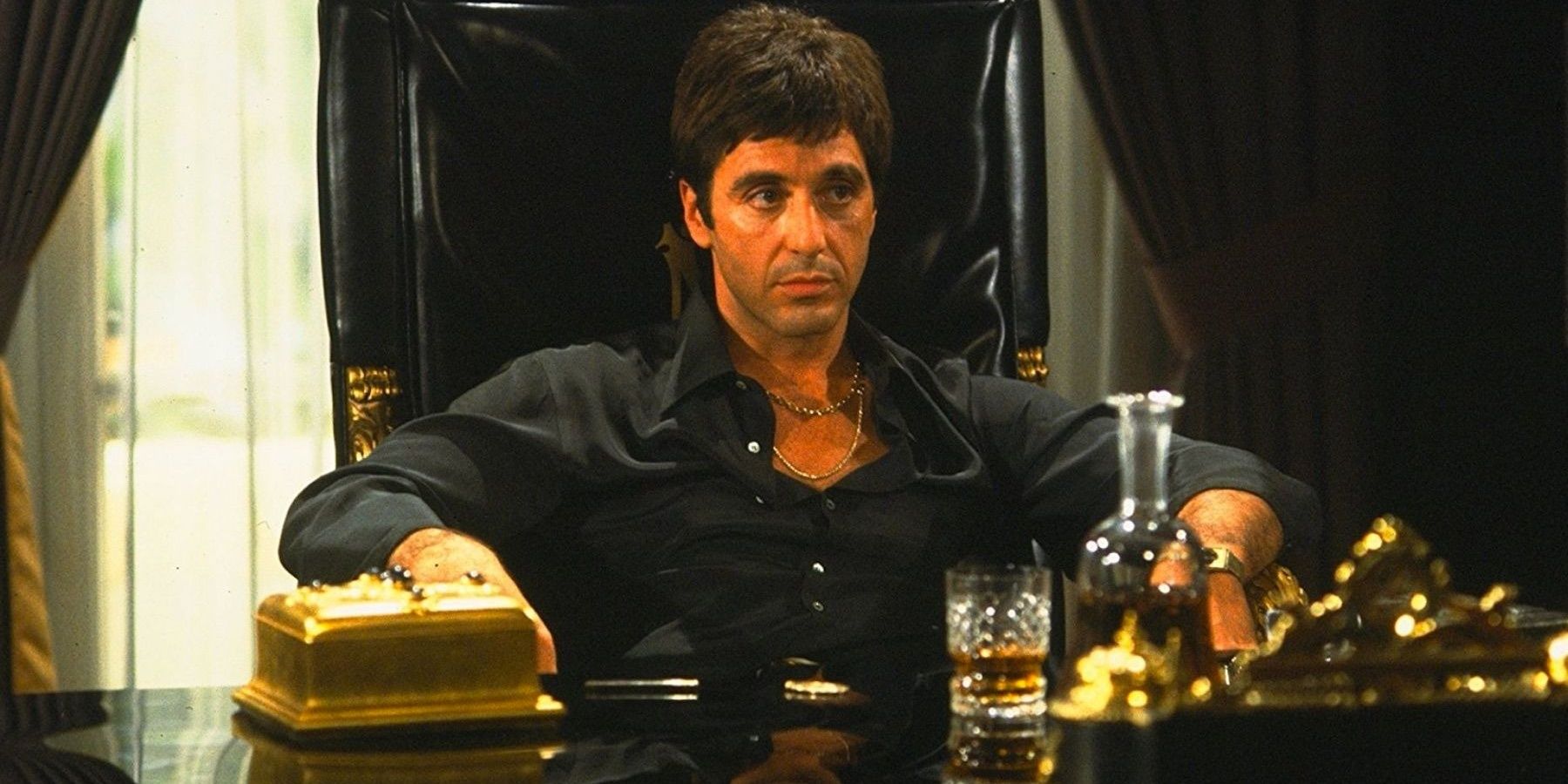
Brian De Palma directed Scarface from a script by politically charged filmmaker Oliver Stone, who spent a lot of time immersed in the crime and corruption of Miami to gather enough material to tell the story of Tony Montana’s rise and fall.
Al Pacino plays Tony, a Cuban immigrant who works his way up the ranks of the cocaine business before falling from grace due to his own addiction. De Palma’s Scarface explores the same themes of immorality that the 1932 original did.
The Irishman (2019)
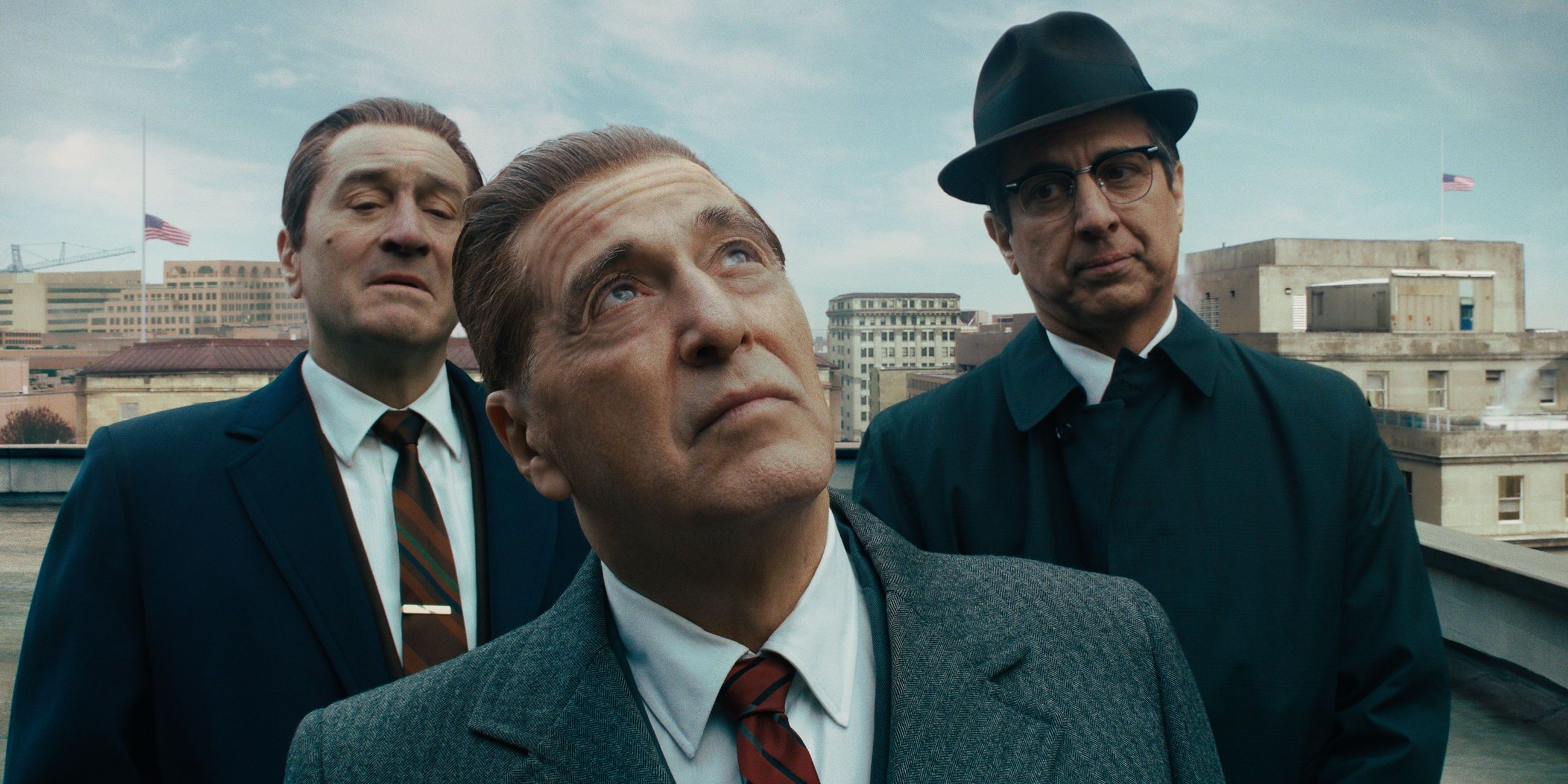
Martin Scorsese often finds his own projects, but sometimes his collaborators will bring stories to him. Robert De Niro brought the life of Frank Sheeran to Scorsese’s attention. Sheeran was a mob hitman who claimed to be responsible for the unsolved murder of union leader Jimmy Hoffa.
The story probably isn’t true – at least not in its entirety – but it did offer Scorsese the chance to explore the connections between labor unions and organized crime. Instead of basking in the coolness of the gangster lifestyle, The Irishman focuses on the end of their lives, when they’re left sad and alone.
Heat (1995)
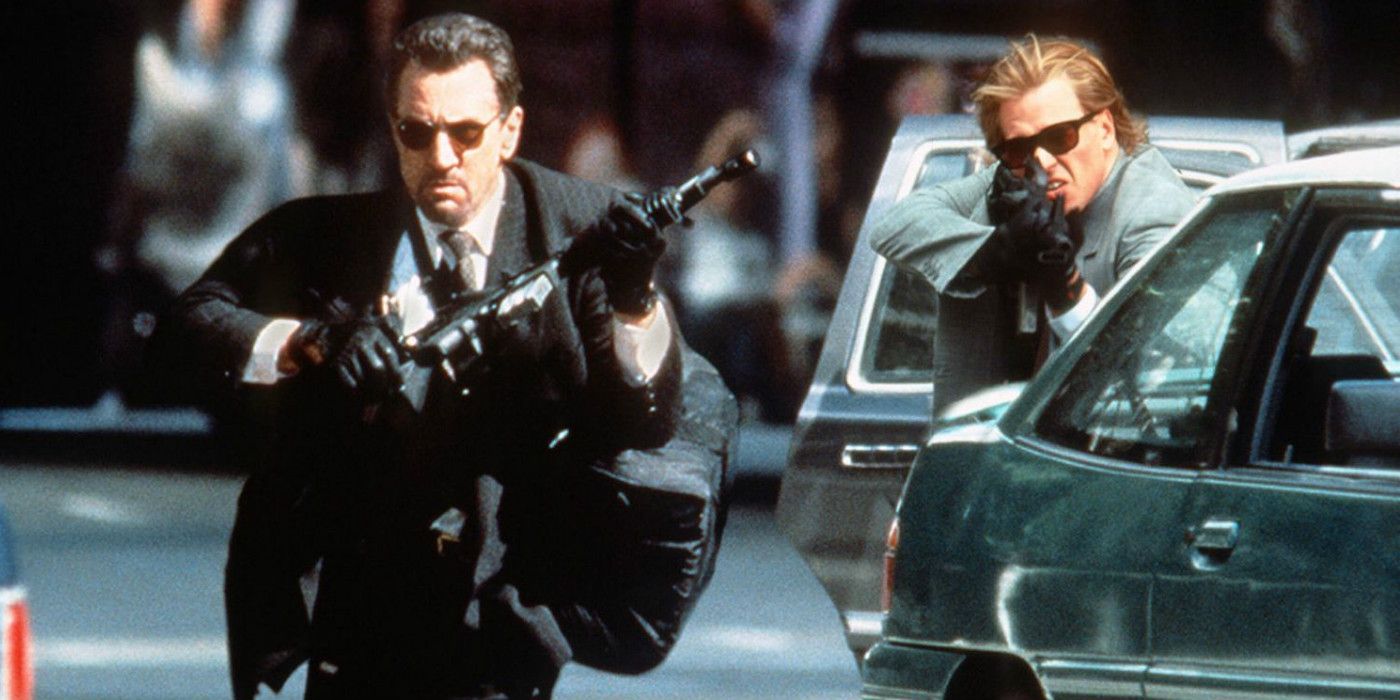
Michael Mann’s Heat is the quintessential portrait of crime and corruption in Los Angeles. It’s a cat-and-mouse thriller pairing up Al Pacino and Robert De Niro for the first time ever as a cop and a bank robber he’s trying to bring to justice. The most interesting idea explored by the movie is that getting out of the criminal life is never easy, even if one wants to leave the life behind.
There’s a police shootout in Heat that’s so realistic that it’s sometimes screened during real police training. Mann’s portrayal of L.A. in Heat heavily influenced Christopher Nolan’s portrayal of Gotham City in The Dark Knight.
Jackie Brown (1997)
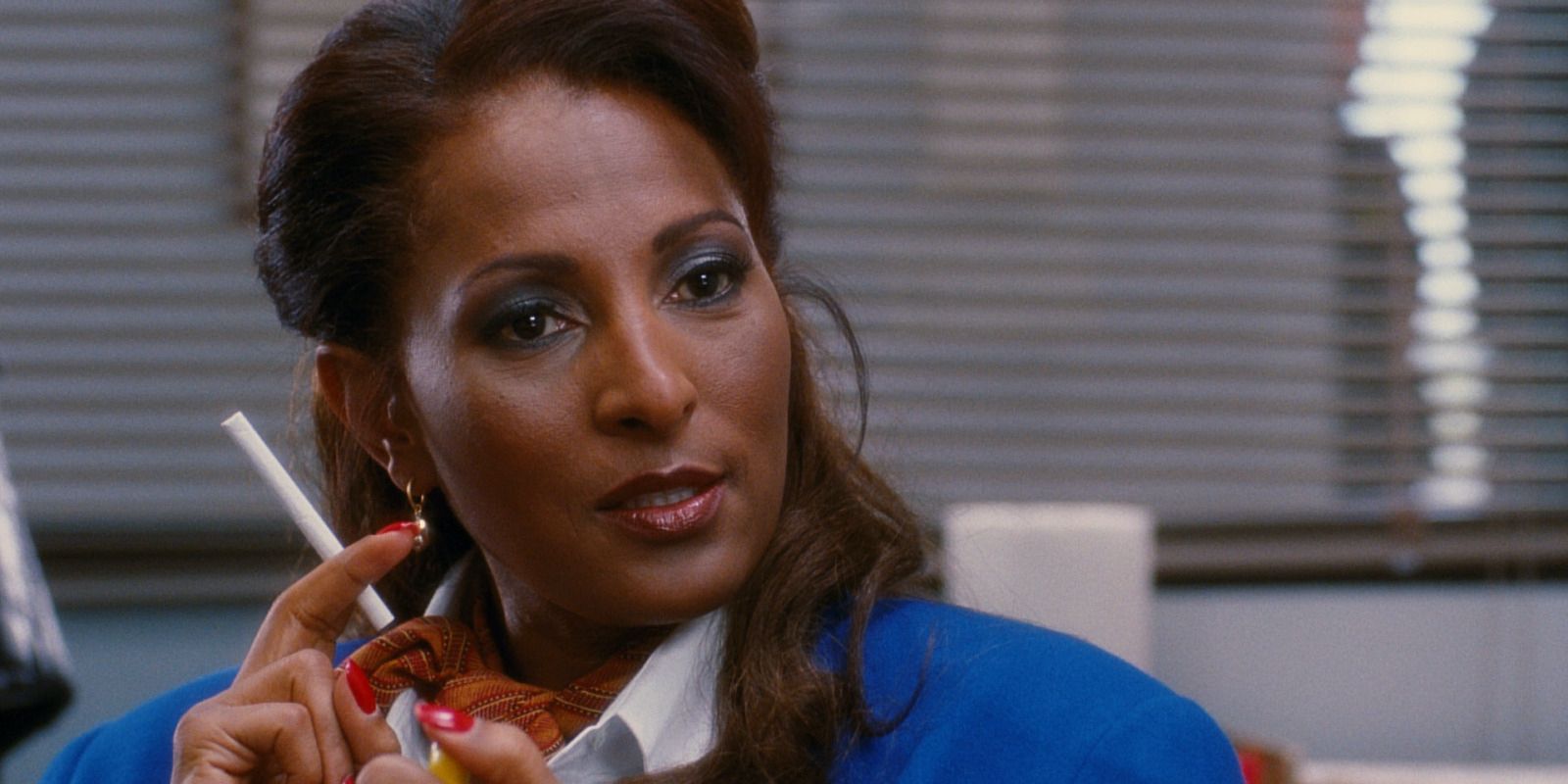
After helming the nonlinear antics of Reservoir Dogs and Pulp Fiction, Quentin Tarantino delved into the crime genre one last time before moving onto kung fu actioners, World War II epics, and spaghetti westerns with Jackie Brown. Based on Elmore Leonard’s Rum Punch, Jackie Brown is Tarantino’s only movie adapted from previous source material.
Easily Tarantino’s most underrated movie, Jackie Brown stars Pam Grier as an air stewardess who plays a gun runner. Interestingly, the main theme in Jackie Brown is aging, which isn’t explored in many crime thrillers.
Le Cercle Rouge (1970)
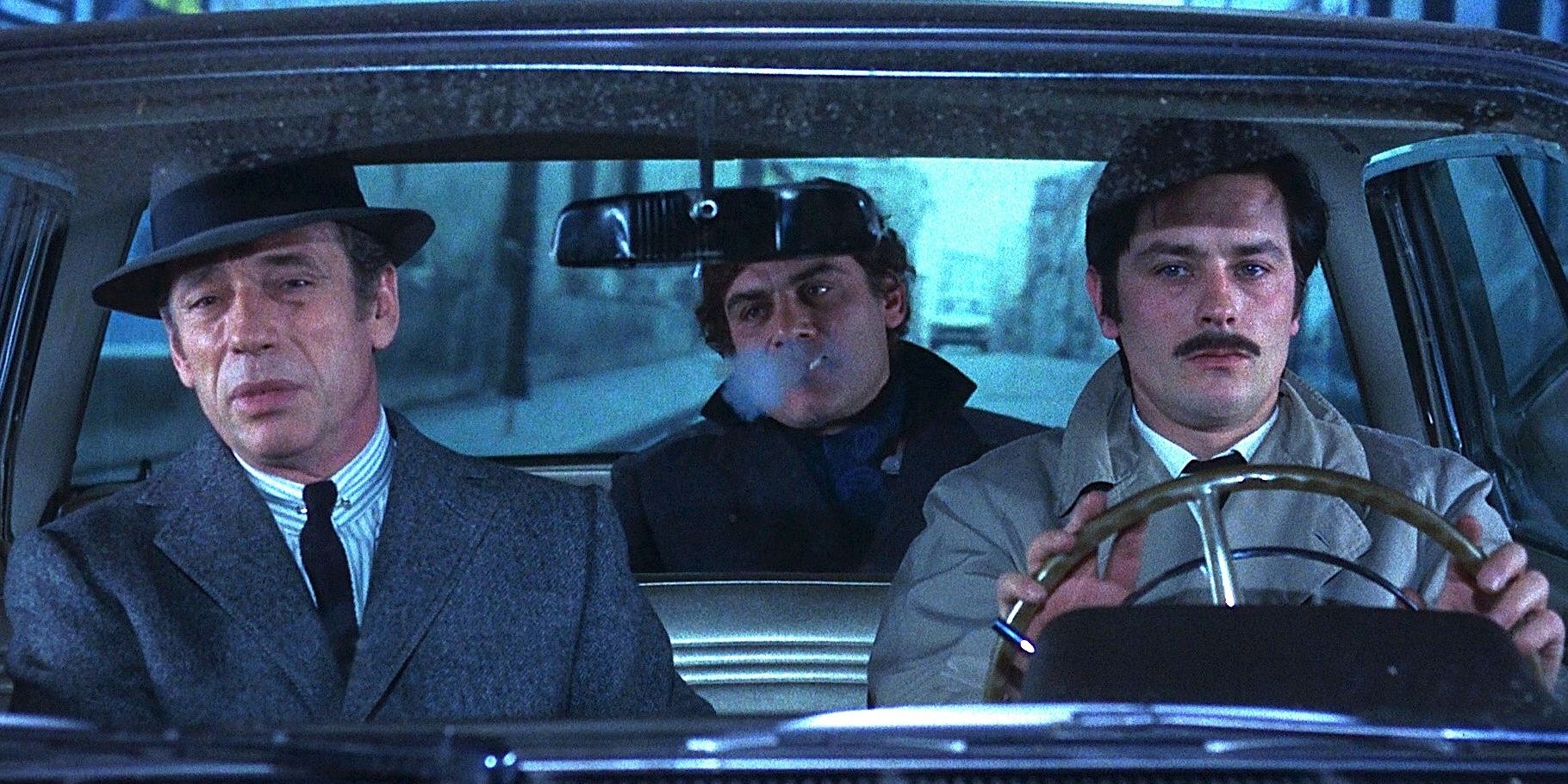
Written and directed by the great Jean-Pierre Melville, Le Cercle Rouge stars Alain Delon as a master thief who plots his next heist after being released from prison. Melville used his penultimate film to dig into such existential themes as solitude and the downsides of friendship.
The movie culminates in an iconic extended heist sequence that plays out with almost no dialogue. This sequence exemplifies the beauty of Melville’s minimalist filmmaking style.
Goodfellas (1990)
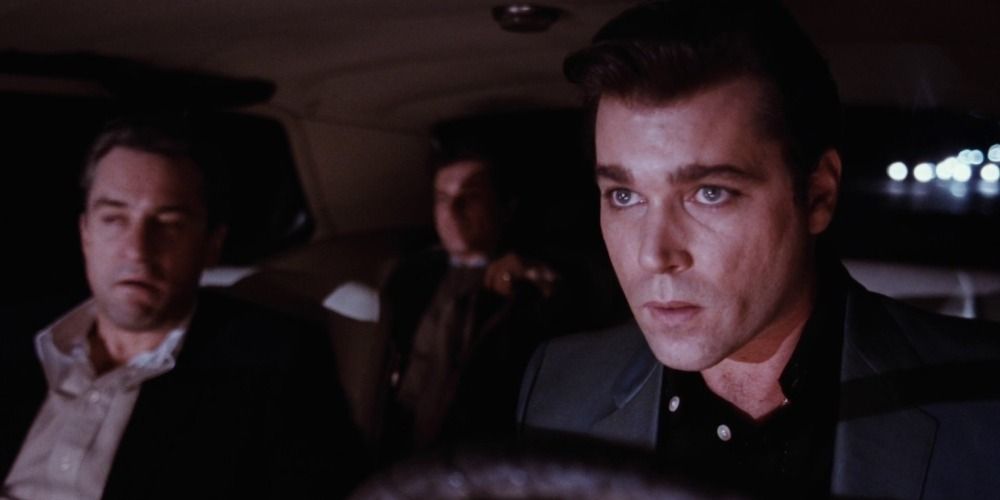
Like all of Scorsese’s mob movies, Goodfellas is a cautionary tale warning against the gangster lifestyle. Henry Hill’s life story presented Scorsese with the perfect vehicle to deliver this message, as he was lured in by the glitz and glamor of the mafia, then found himself hopelessly unprepared to do the dirty work that goes along with it.
After entering the drug trade against his boss’ wishes and getting high on his own supply, Henry had to turn in his friends as a federal witness. Ray Liotta, Robert De Niro, Lorraine Bracco, and Joe Pesci anchor the movie with phenomenal performances. Goodfellas exhibits all kinds of themes: power, loyalty, addiction, morality, betrayal, and the consequences of violence.
Chinatown (1974)
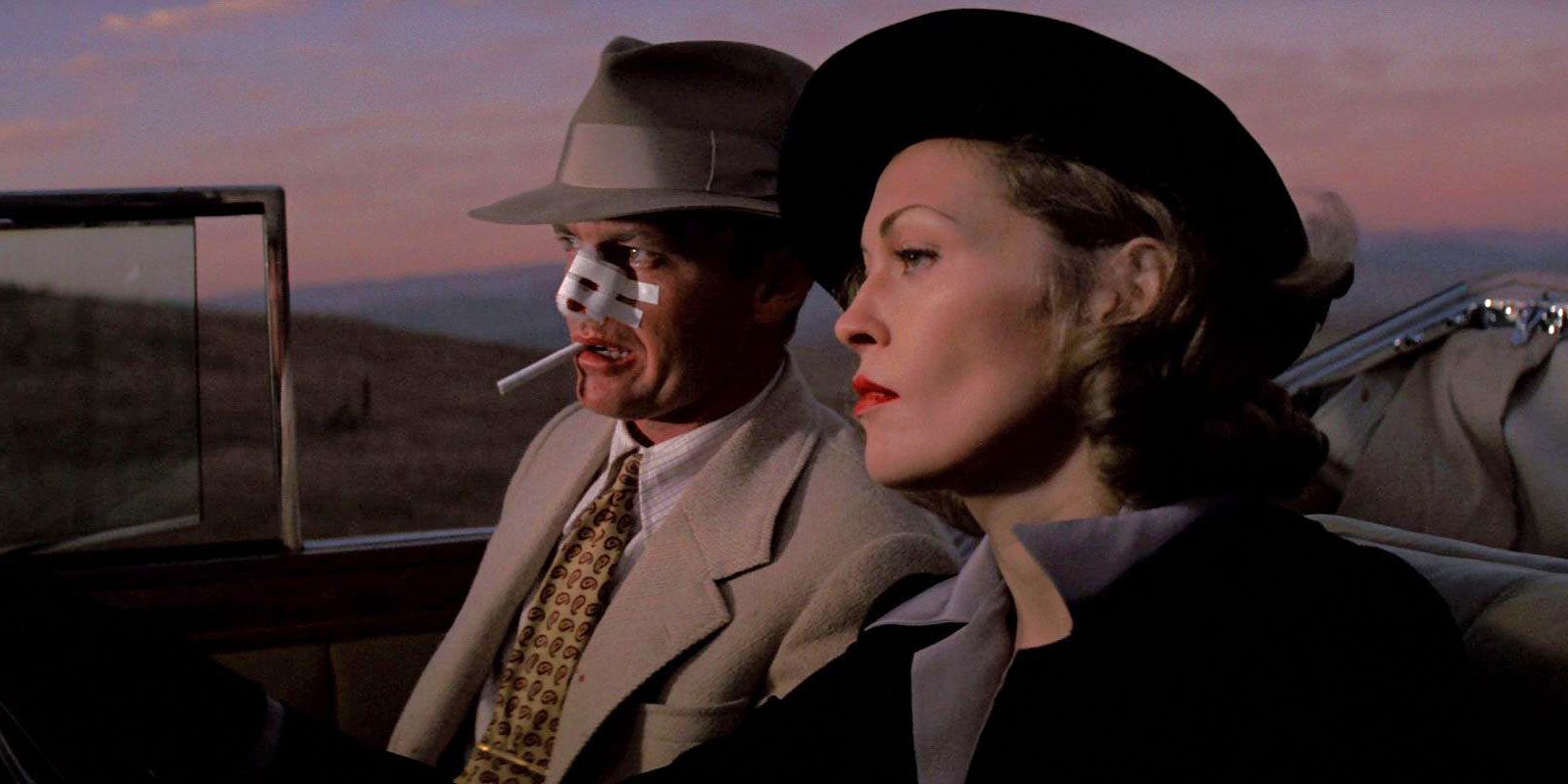
Roman Polanski practically invented the neo-noir with Chinatown, which stars Jack Nicholson as a P.I. named Jake Gittes whose latest case draws him into a widespread conspiracy.
Robert Towne’s screenplay is one of the greatest ever written. Its pitch-perfect structure has been studied in countless screenwriting classes. The primary theme of Chinatown is injustice, as Gittes is a helpless individual who tries and fails to bring down a corrupt institution.
Once Upon A Time In America (1984)
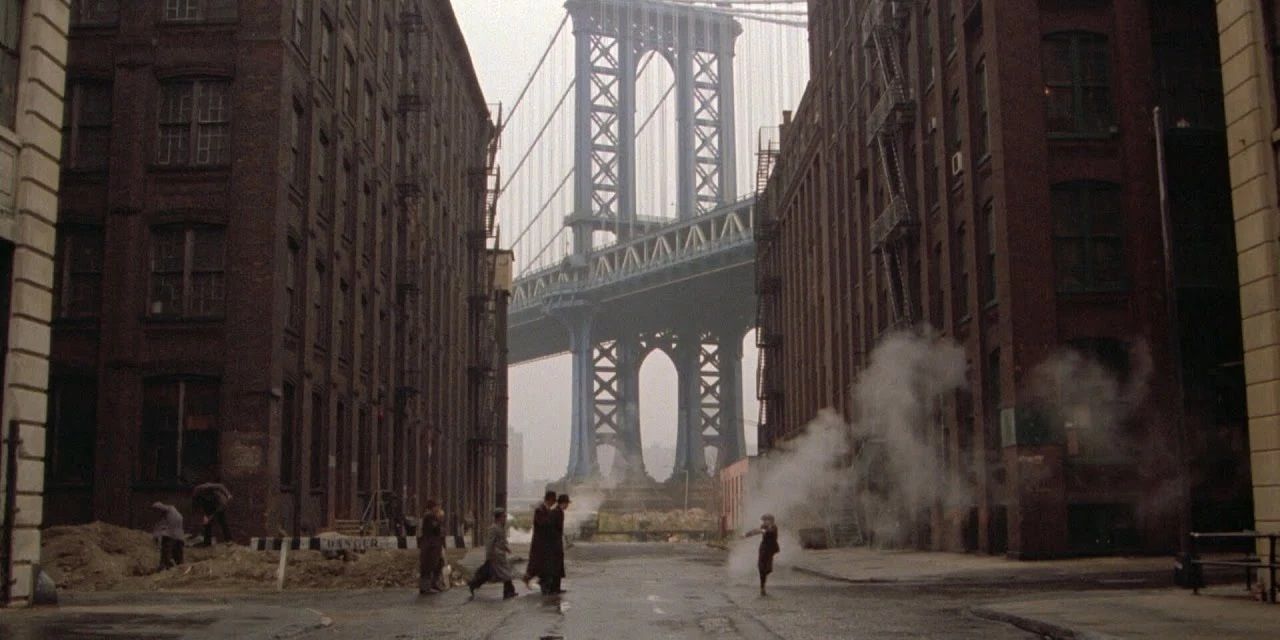
Sergio Leone spent years trying to mount his American crime epic. Once Upon a Time in America chronicles the rise and fall of some kids from New York’s Jewish enclave who grow up to become significant figures in organized crime. It’s slow-paced, but every beautifully composed frame is a feast for the eyes.
Leone’s 229-minute cut is the best version of the movie. Leone explored a lot of the same themes found in other gangster stories, including greed, broken friendships, and the mob’s place in American society.




